
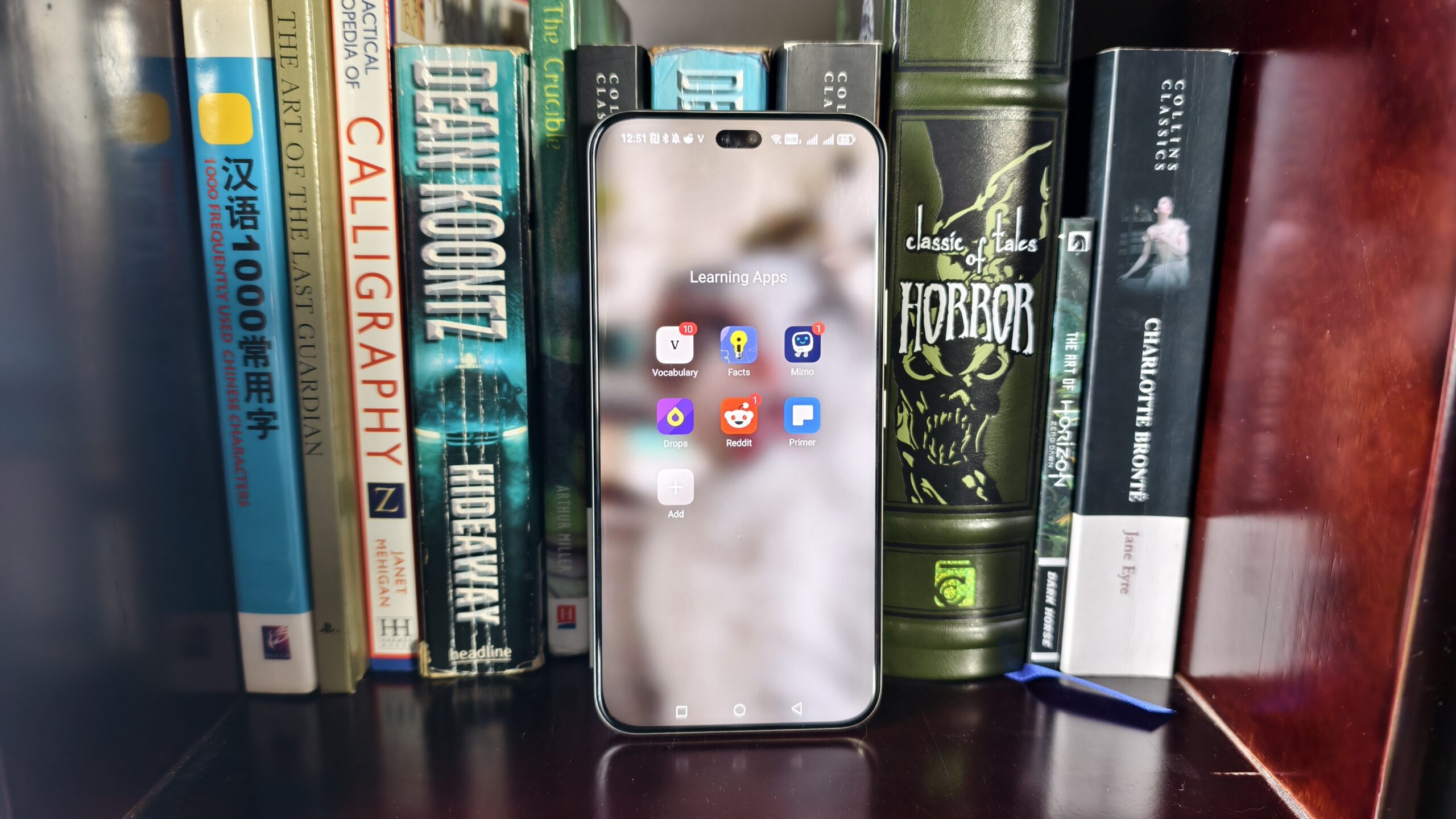
Megan Ellis / Android Authority
I’ve had a lifelong love of learning, to the point where I used to read encyclopedias and dictionaries as a child, along with a variety of non-fiction books around specific topics. This love of learning hasn’t dampened as an adult, as I frequently find myself in Wikipedia rabbit holes, and my YouTube Watch Later list is filled with topics around science, history, psychology, and other topics I want to learn about.
The difference, however, is that I have a lot less time now to spend on learning — those Wikipedia and YouTube detours often impact my productivity. Meanwhile, I’ve enrolled in courses on multiple platforms, only to never find the time for 30-minute or longer lessons. Luckily, I’ve found some apps that allow me to indulge in my love of learning through bite-sized lessons that I can fit into my day without impacting my productivity.
Do you use apps to learn new things?
0 votes
1. Mimo
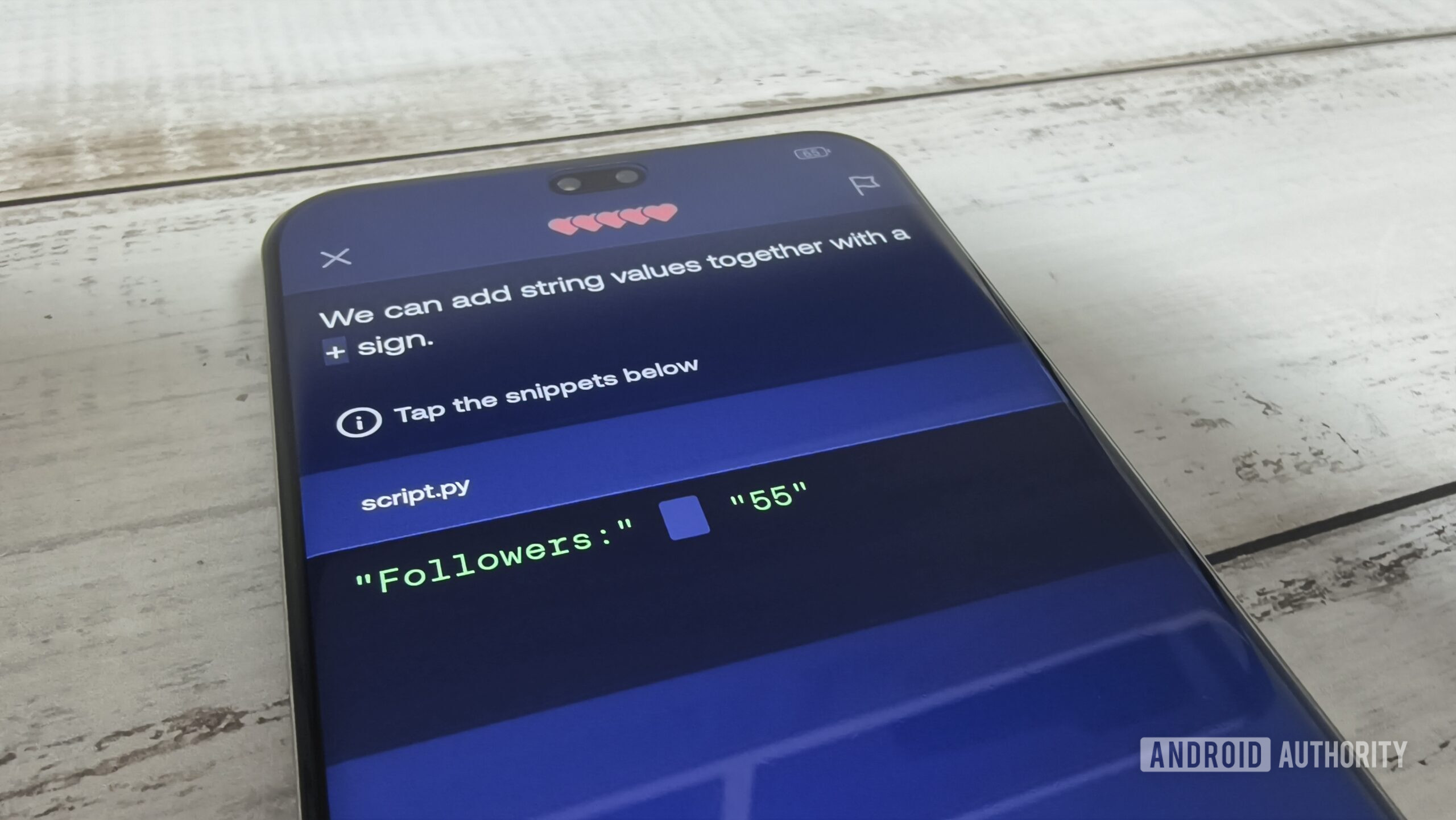
Megan Ellis / Android Authority
Mimo is a learning app that includes short lessons on coding and programming. When starting out, you can answer a few questions to help the app decide which coding language is the best one to start out with. I’ve started the introduction course to Python, which I hope will help me understand some of the code I work with when self-hosting services.
While it is arguably better to learn coding using a web platform thanks to the comforts of a larger screen and keyboard, I often have time to kill when I’m drinking my coffee in the morning or winding down for bed at night. This makes a mobile-optimized platform ideal for my own schedule. However, Mimo does also have a website if I ever choose to switch over to a larger screen as the lessons become more complex.
I’m still in the early stages of my course, but Mimo’s bite-sized lessons have given me a start when it comes to learning coding — something that I’ve wanted to do for years but struggled to find the time for.
2. Drops
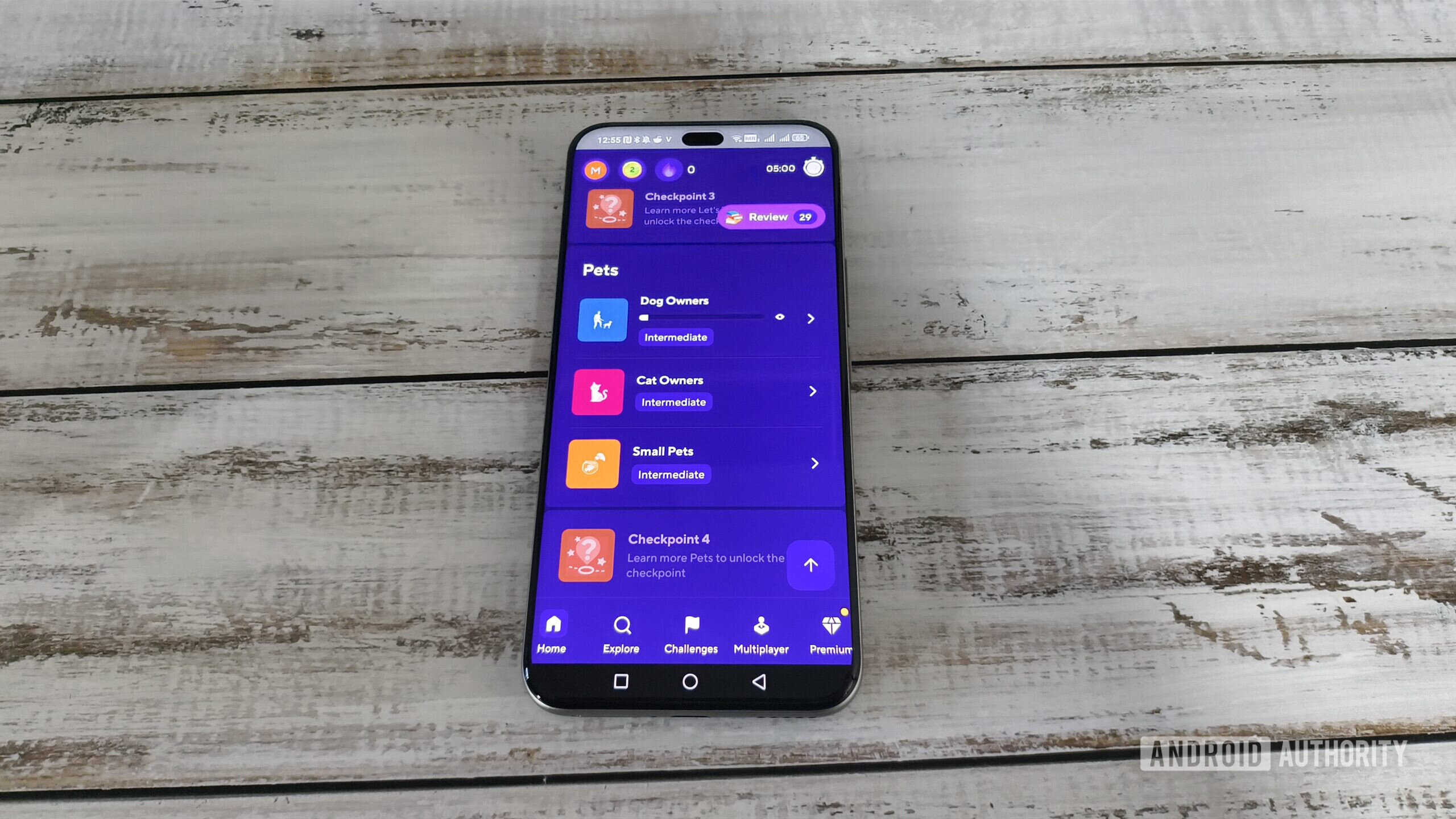
Megan Ellis / Android Authority
I’m considering giving up my Duolingo streak due to getting stuck in a bit of a rut with the language-learning app. As a result, I’ve been exploring other apps that I can use to learn Mandarin more quickly. That’s when I discovered Drops, which focuses on expanding your vocabulary in the language you’re learning.
I like that you can select different topics you want to learn about, rather than your course being set in stone.
What I enjoy about Drops is that you can select different topics you want to learn about, rather than your course being set in stone. There are a few drawbacks to the app, though — for example, you have a daily time limit. Once this time limit is reached, you have to wait until the next day to continue, unless you have a premium subscription. I’ve also found that some of the pronunciation of words in the app seems different to what I have previously learned, but this could be down to regional accents.
I would mostly recommend Drops as a supplemental app for language learning. It can quickly expand your vocabulary and is a lot more grounded in relevant, modern topics. However, grammar is also an important aspect of language learning, so it could be useful to use another app or website for that. I’ve considered using Google’s Little Language Lessons experimental tool, but the need to sign in with my Google Account has somewhat dissuaded me.
3. Vocabulary
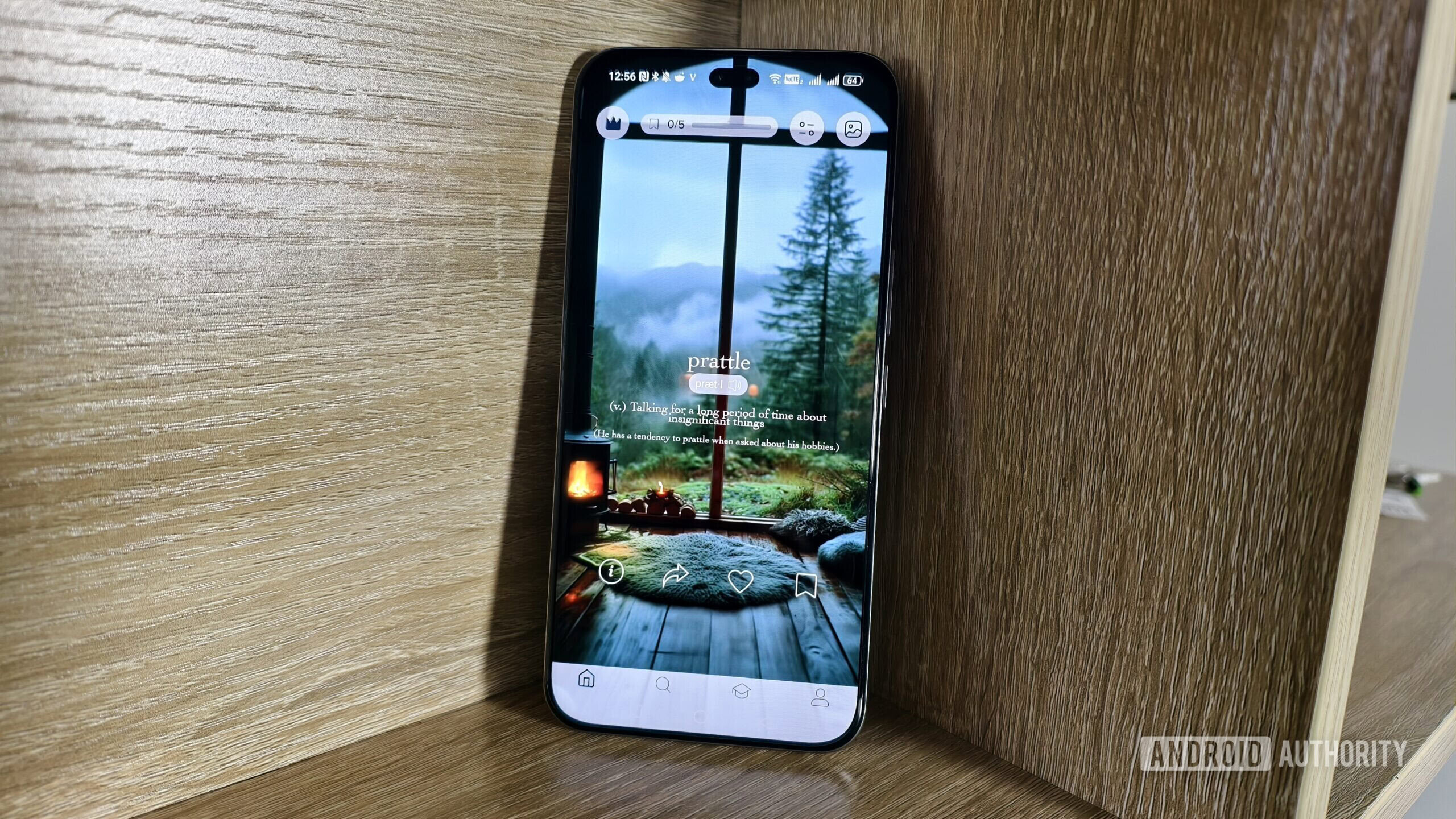
Megan Ellis / Android Authority
I’m not only interested in expanding my vocabulary in foreign languages, but also my home language: English. So when I found Vocabulary while exploring different learning apps, I immediately gave it a try. You can choose the types of words you want to learn, including curse words and slang. You can also set a proficiency level so that the app can tailor its recommendations to you.
I still get a lot of notifications for words I already know, but at least once a day, I find a word I wasn’t already aware of. I also enjoy being reminded of words I know but seldom use, like today’s recommendation of “prattle”. Useful features include the ability to like words to tailor your recommendations, save words for later study, and listen to the pronunciation of a word. I’ve even added the Vocabulary widget to my home screen, next to the scornful Duolingo owl, to see a variety of words during the day.
4. Primer
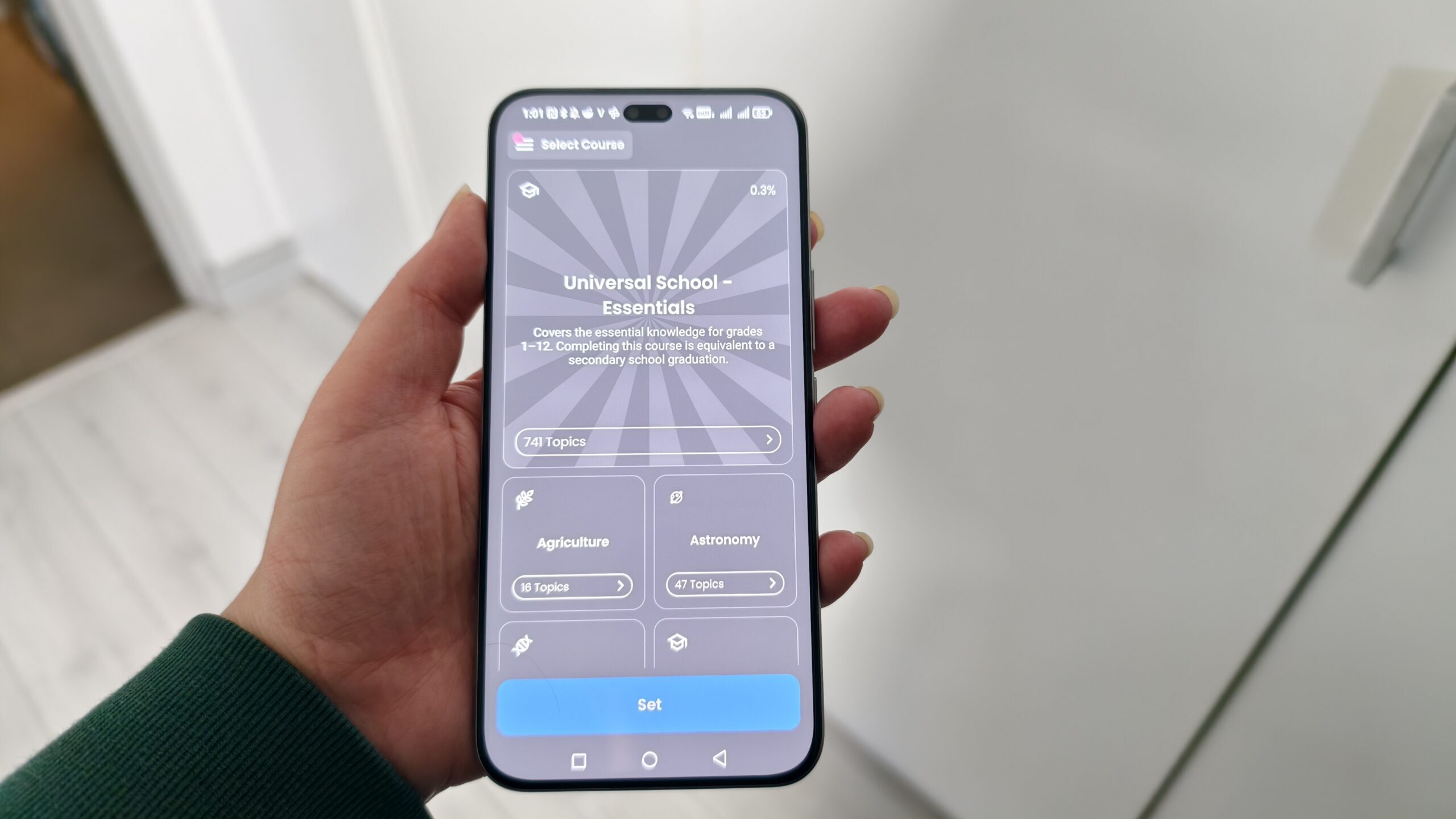
Megan Ellis / Android Authority
While the other apps on this list are free, with extra elements locked behind a subscription, Primer requires a subscription or a scholarship. Applying for a scholarship is simple and I heard back within a day that mine had been approved. I’ve since been using the app to explore short lessons on computer science to brush up on and expand the knowledge I use for work. But I also plan to use it for topics I’m simply just passionate about, like animals and history.
Primer reminds me of Google’s Learn About app, with both Primer and Google’s app using AI to help people learn about topics. However, Primer is available outside of the US, which is a major bonus for people from other parts of the world.
The lessons aren’t extremely in-depth, but they are useful for getting an introduction to a variety of topics.
The lessons aren’t extremely in-depth, but they are useful for getting an introduction to a variety of topics. The app also includes multiple-choice questions that you can use to assess your proficiency in a specific topic. I like that larger topics are split into smaller segments, making it much easier to learn at your own pace.
I would like to see more topics added, especially psychology and more in-depth zoology. But this is also due to my difficulty finding quality apps that teach about these topics in an accessible way.
5. Reddit
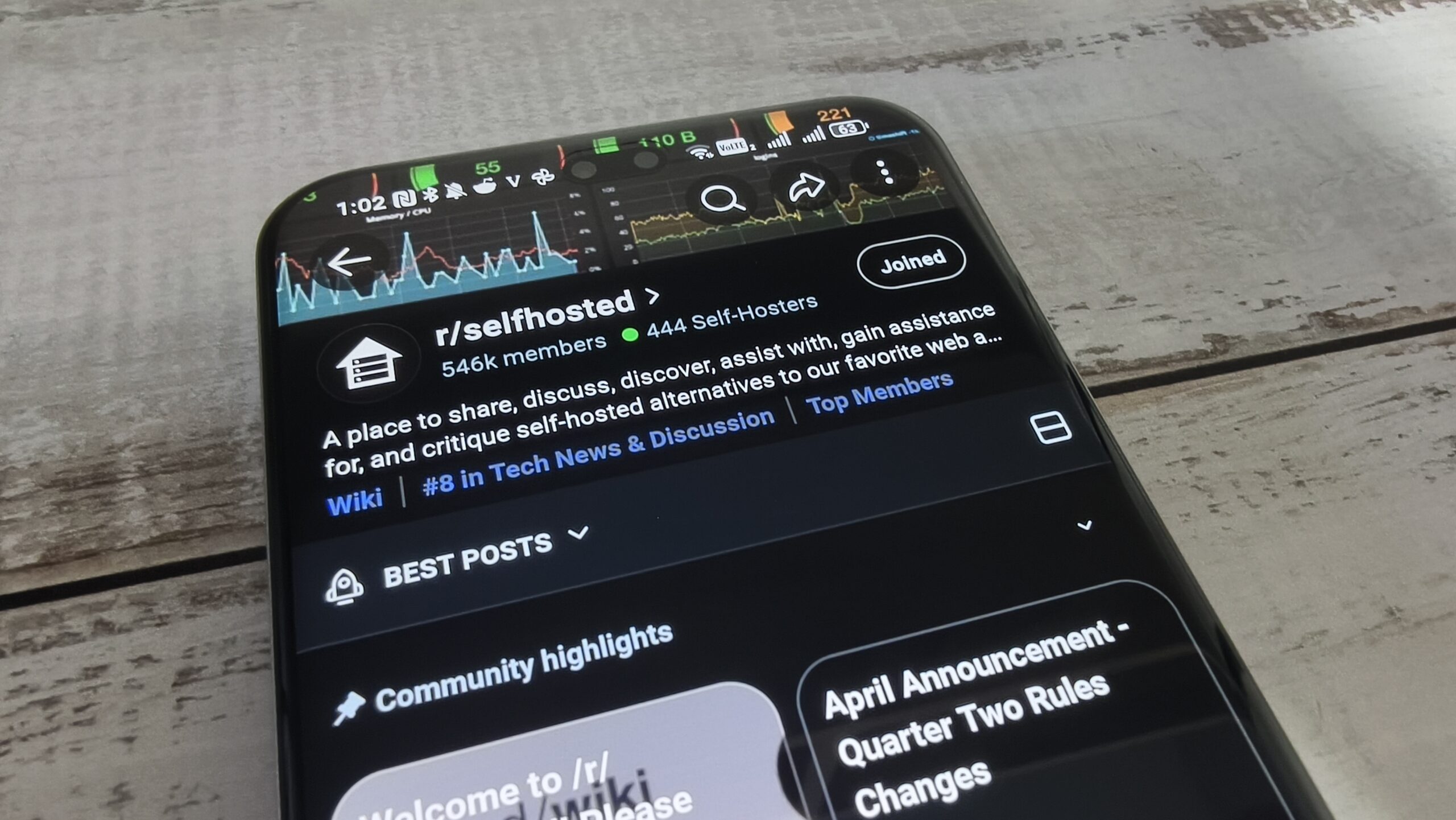
Megan Ellis / Android Authority
Now, I’m not going to argue that Reddit is actually a learning app and not a social network. However, depending on how you approach Reddit, you can use it to learn about new topics and interesting facts. Whenever I need to expand my knowledge for work, I make sure to join subreddits and read posts around these subjects. For example, I’ve joined the communities for PC building, self-hosting, and open-source software.
Depending on how you use Reddit, you can use it to learn about new topics and interesting facts.
I am also part of subreddits that cover topics I’m interested in but don’t cover as part of my daily work. I’ve really struggled to find an Android app that shares animal facts and pictures aimed at adults, so I’ve been relying a lot on the animals and zoology subreddits.
I also subscribe to subreddits like r/TodayILearned and r/History to learn new facts that are more general, though they do often get drowned out by other subreddits in my feed. I’m planning on creating a custom feed to focus specifically on topics I want to learn about, to better separate my learning from general browsing.
6. Facts
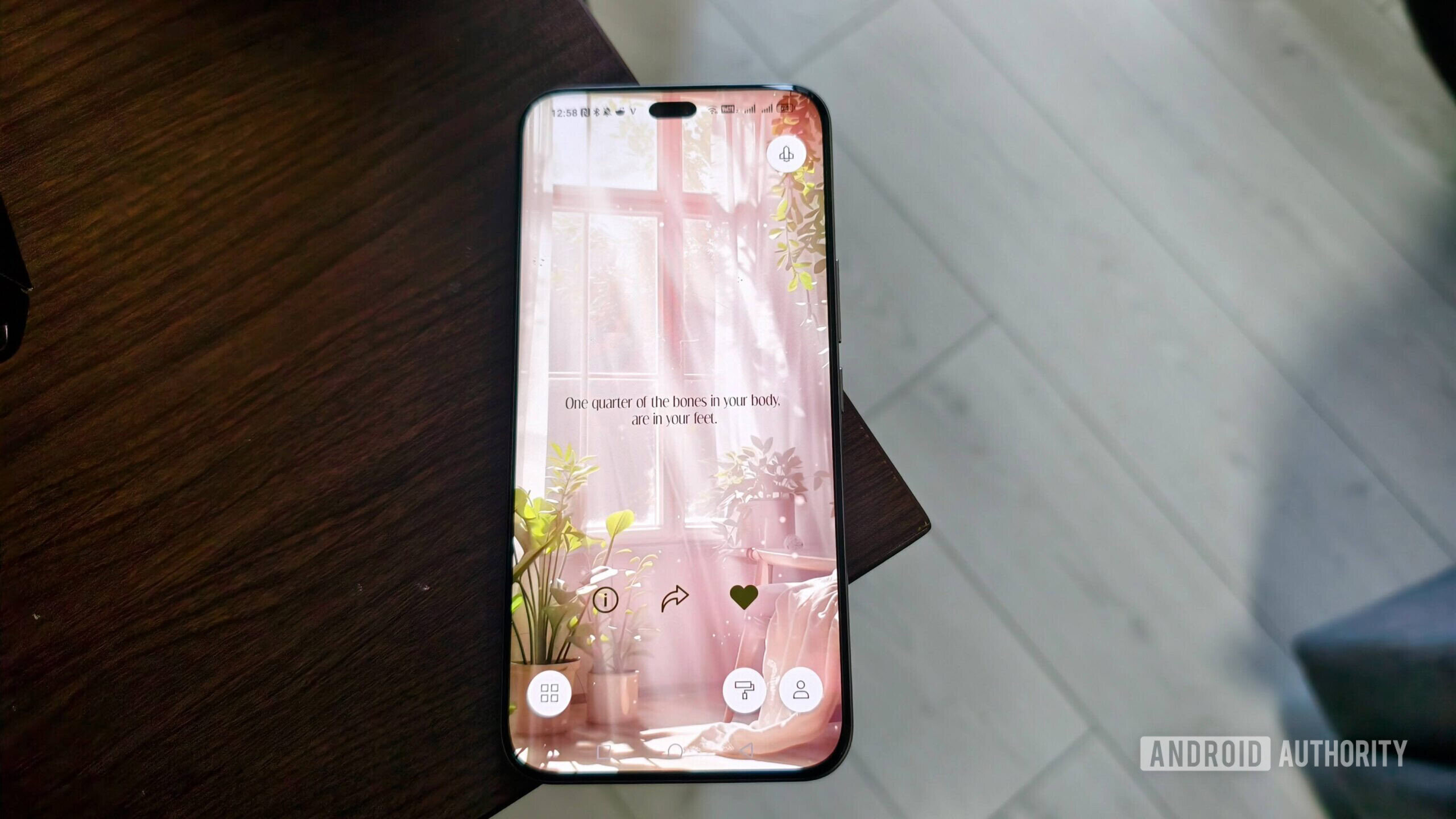
Megan Ellis / Android Authority
Facts, also called Daily Random Facts, is from the same developers behind Vocabulary. As such, it includes many of the same features I like, such as the ability to like certain facts to tailor your feed, as well as the availability of a customizable widget. I also like that you can press the information icon to see where a fact came from, though sometimes it leads to a dead link.
You can tailor your facts to cover specific topics, which I’m doing to learn more about animals and history. But certain topics, like technology and trivia, are locked behind a subscription.
While it does have its constraints, I enjoy using the app overall to learn new facts about topics I’m interested in. It helps satiate my need for more knowledge in a way that doesn’t impact my work day.
There are plenty of learning apps out there, but many require a significant chunk of your time to learn. I definitely plan to explore some free courses on subjects of interest, but with limited time and energy, these apps allow me to learn in quick bite-sized lessons.
The fact that these are free or allow for scholarships is also a major benefit for me, as my budget doesn’t really allow for software subscriptions at the moment. This does mean having to endure the occasional ad or paywalled features, but at least I’m enjoying learning new things instead of mindlessly browsing social media.
RELATED POSTS
View all


